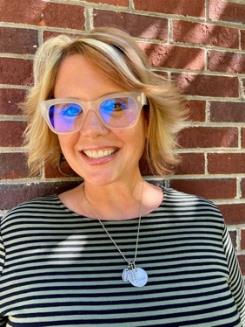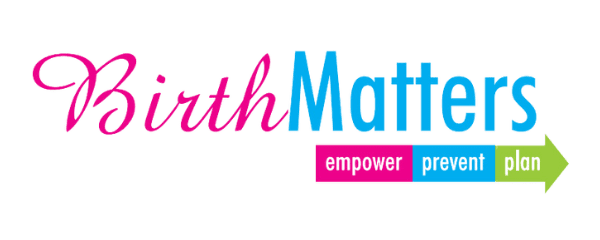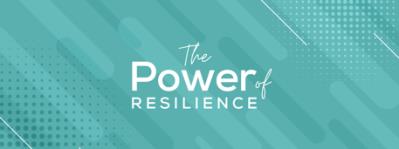Doulas: Advocates for Infant Mental
Health from the Very Beginning of Life

Infant and Early Childhood Mental Health Consultant with the SC
Infant Mental Health Association
Almost twenty-five years ago, I began my journey to become a doula. I was newly married, just completed graduate school, and moved to a new state for my husband’s job. Finding myself with a little extra time on my hands and trying to figure out what my next steps in life should be, I stumbled upon an article about doulas in my area which piqued my interest. Doulas assist new families through the life-changing experience of having a baby by providing emotional and physical support during pregnancy, childbirth, and the early postpartum period. I had no idea how this “doula volunteering†would end up laying the foundation for my many years of work with families and children in the field
of infant mental health.
I stepped into my doula training with bright eyes, eagerness, and a desire to be the perfect doula. I quickly learned that being a doula wasn’t at all about being perfect…it was about meeting people where they are at and being able to just be with them. This focus on relationships and trust-building is the very core of the current work I do as an infant and early childhood mental health consultant. My work focuses on the premise that the social and emotional health of children comes out of healthy and strong caregiver relationships. By establishing caring and supportive relationships with the people that they are providing service to, doulas are helping mothers build their own capacity to form a healthy bond with their children.
Also, in my naivete as a young doula, I thought that I could learn all the “right ways†to help someone have a baby. I entered into this work with the idea that I could advise soon-to-be parents with all of the information that I had gained on the best way to have their baby. I was quickly, and rightfully, corrected by the first few mothers that I worked with who were not eager to hear me lecture them. As I grew from these experiences, I learned that these women came to me with their own individual strengths, thoughts, and ideas. It was not my job to direct them. I learned that what was most beneficial to these women was having a consultative, collaborative, reflective, and strengths-based approach. This approach carried with me into infant mental health work. It allows me to reflect on my own values, beliefs, and assumptions and how that impacts the work that I do. Reflection and collaboration also allow me to support the caregivers and to help them remember to always hold the baby in mind and to attend to the baby’s experience and well-being. At the same time, I am able to help these caregivers explore their own individual strengths and collaborate to identify possible solutions that best fit their environment.
My early start in the doula world also opened my eyes to the importance of mindfulness. Learning the art of how to help comfort a woman during childbirth through meditation, imagery, touch, essential oils, music, and chanting helped me understand the importance of grounding and being fully present and self-aware. Not only was I present in the joyful moments but also in the most difficult ones where the journey is hardest, but the growth is magnified. This mindfulness training and self-awareness has served me well in the infant mental health field. I continue to utilize these techniques with caregivers and young children by helping them learn how to self-regulate and engage in self-care. I am reminded that the work we do as doulas and in the infant mental health sector, is emotionally and physically taxing. As a professional, I need to model my own self-awareness and practice my own self-care if I want to be able to fully show up for those I serve.
Perhaps most importantly, my early involvement as a doula solidified the role of culture, power, inequity, and oppression in our work. I witnessed this firsthand in several hospitals in which women of color, teenage women, women without partners, or with same-sex partners were treated markedly different than the other mothers. These women’s concerns and needs were often dismissed, pushed aside, made to wait longer for things they needed, or spoken to in a disrespectful or demeaning manner. As a woman of privilege, doctors and nurses would freely talk around me with disdain and value judgments about these women that they didn’t even know. In that space, I had to find my voice. I chose to have many challenging conversations and advocated for these women. Doulas value diversity and there is a belief that cultural, racial, ethnic, and ability diversity along with understanding is a necessity to achieve birth equity.
These core values of equity are also critical tenets of infant mental health work. Culture shapes relationships and behaviors in important meaningful ways. As an infant and early childhood mental health consultant, it is vital for me to show respect and appreciation for the unique values and beliefs of every family structure which gave me the opportunity to explore cultural differences and the ways in which these differences impact the caregivers and children. It also is critical in the infant mental health field that we promote cultural humility and that we “call in†to difficult conversations as a way to explore the systemic biases that exist in the world of these young children.
Lastly, my early doula work gave me the gift of understanding the importance of community. It helped me to understand that I am but one person in this woman’s life and that this baby will need lots of hands to help grow and thrive in this world. As a doula, I helped to identify resources for new families through their own immediate support system or within the larger community that would carry on and wrap their arms around this little one. This is much the same in my work now in the infant mental health sector. They say, “it takes a village to raise a child†and that is very true. In my work, I rely on family members, neighbors, friends, early childhood education centers, teachers, religious leaders, community organizations, and even policymakers to do all they can to help these little ones in their journey to become the healthiest they can be.
My career as a doula was short-lived, lasting only 3 to 4 years, but what I learned has impacted me for a lifetime. It changed the way I parented my own children and the value I placed on parenting, family systems, and the littlest ones in our society. The lessons I learned as a doula long ago still show up for me every day as a licensed therapist. Doula work is the very start of infant mental health work and is so important in laying the groundwork for strong parent-child relationships and healthy families.
If you are interested in learning more about doula work or infant and early childhood mental health, please join us at the South Carolina Infant Mental Health Association’s Annual conference where Eboni Williams (BirthMatters Doula) and Sheniqua Scott (SCIMHA Intake and Training Coordinator) will be co-facilitating a session on how doulas can use ABC Model techniques with their families.

The Power of Resilience: Join the South Carolina Infant Mental Association, and national, state, and community leaders as we explore resilience through the laughter of babies, the reflections of caregivers, and the hope in our communities. Gather with your colleagues as we discuss how to nurture our earliest relationships, promote equity and inclusion in the field of IECMH and foster resilience in our smallest children.


